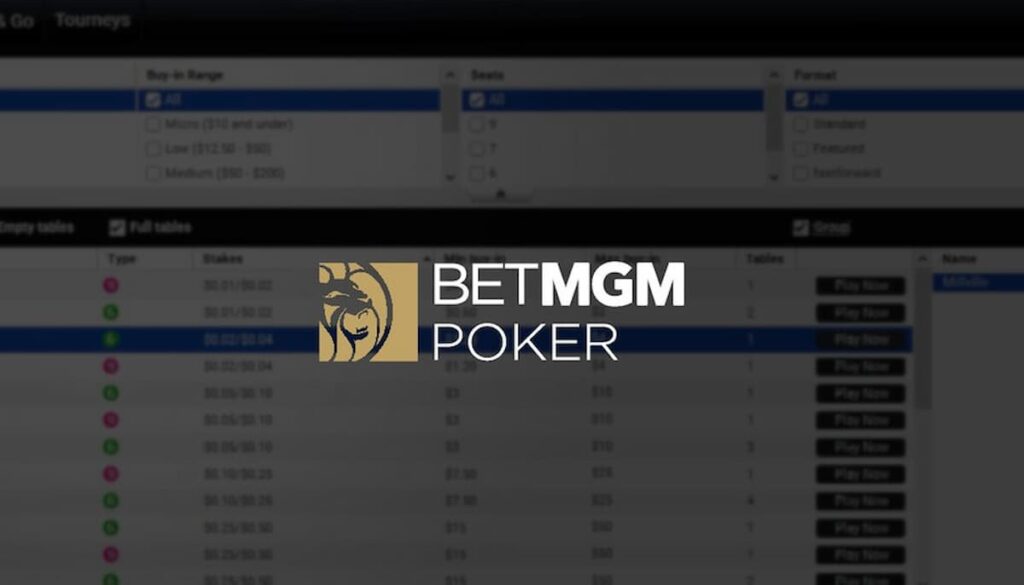Thursday, April 11, was a big day for the future of online gambling in the United States. In a US District Court in New Hampshire, Judge Paul Barbadoro listened to oral arguments in the Wire Act case, which was brought by the New Hampshire Lottery.
Counsel from the Department of Justice and the New Hampshire Lottery laid out their cases. They also answered questions from the judge.
It was a good day for supporters of legal online gambling.
Barbadoro’s questions and statements consistently (but not always) seemed to favor the New Hampshire Lottery.
Play USA identified two specific exchanges that encapsulate the day, and which side Barbadoro favored. You can find a complete summary of the proceedings at Online Poker Report.
About that memo
The first hint that Barbadoro was leaning toward the NH Lottery came fairly early.
The Department of Justice attempted to get the case tossed out of court by arguing the NH Lottery had no standing to bring a case. The DOJ’s reasoning was a recent memo issued by Deputy Attorney General Rod Rosenstein that (kind of, sort of) exempted state lotteries from falling under the enforcement umbrella of the new opinion.
Barbadoro wasn’t buying it.
“If the threat of prosecution exists and a lawsuit is brought because of a significant threat of prosecution,” Barbadoro said. “I have a very difficult time seeing how the Rosenstein letter would deprive the plaintiffs of the standing they would otherwise have.”
The best counterargument it could offer was that it had no immediate plans to enforce its new Wire Act policy against lottery programs. But, as the DOJ counsel noted, that wasn’t set in stone. Enforcement against online or multi-state lotteries was still under active review.
Barbadoro also emphasized that the recent memo flies in the face of what the 2018 opinion stated. There’s also the inconvenient fact that the impetus for the 2011 DOJ opinion was a request from the New York and Illinois state lotteries.
Dustin Gouker summed up Barbadoro’s reaction nicely during a company discussion in the immediate aftermath of the case: “I get the sense the Rosenstein memo backfired. (It) seems like they thought the case could get tossed on those grounds, and the judge stopped just short of LOLing at them.”
One comma, two different Wire Act interpretations
A second comment bodes well for online gambling supporters.
Barbadoro pointed to an obvious flaw in the DOJ’s reading of the statute, asking the DOJ:
“Why would (the second clause) criminalize the use of wires to receive money for doing something that is lawful under the first clause?
“If you read it as the plaintiffs read it, then it is a completely coherent statute.”
That common-sense reason highlights a fatal flaw in the DOJ’s most recent interpretation of the Wire Act.
Namely, the Wire Act doesn’t make much sense if it’s interpreted in that fashion.
What the Wire Act says
The passage in question reads:
(a) Whoever being engaged in the business of betting or wagering knowingly uses a wire communication facility for the transmission in interstate or foreign commerce of bets or wagers or information assisting in the placing of bets or wagers on any sporting event or contest, or for the transmission of a wire communication which entitles the recipient to receive money or credit as a result of bets or wagers, or for information assisting in the placing of bets or wagers, shall be fined under this title or imprisoned not more than two years, or both.
(b) Nothing in this section shall be construed to prevent the transmission in interstate or foreign commerce of information for use in news reporting of sporting events or contests, or for the transmission of information assisting in the placing of bets or wagers on a sporting event or contest from a State or foreign country where betting on that sporting event or contest is legal into a State or foreign country in which such betting is legal.
What the Wire Act means
Attorney John Holden succinctly summarized the two arguments at Legal Sports Report:
Olson makes a fallback argument in the event the Lyons’ 1st Circuit statement is deemed dictum by the New Hampshire District Court. This is that the 2018 Wire Act opinion failed to apply a common-sense interpretation of the statutory language and instead choses to apply the “last antecedent rule,” which essentially confined the phrase “on any sporting event or contest” to only the phrase immediately preceding it.
This is contrary to the Supreme Court’s guidance regarding the application of the last antecedent rule, which states it should only be applied when “the varied syntax of each item in the list makes it hard for the reader to carry the final modifying clause across all three.”
Of course, as Barbadoro said, “This statute is a mess of a statute.”
CHUMBA ACCEPTS US PLAYERS & HAS REAL CASH PRIZES
-
Visit Chumba Casino
- $2 in Sweeps Cash FREEPLUS $10 when you deposit
- Chumba Casino Review
- US Players Accepted
- $2 in Free-Play on Sign-up
- Deposit via Credit or Debit Card
Summary
Barbadoro hasn’t ruled on the matter, but the consensus opinion following oral arguments is he is heavily leaning toward siding with the New Hampshire Lottery.
But as the judge himself noted, “I have a strong feeling that however I resolve the case, or however the 1st Circuit resolves the case, it is likely going to be resolved by the US Supreme Court either way.”
The post Federal Judge Punches A Couple Of Holes In DOJ Wire Act Position appeared first on Play USA.

 Visit Chumba Casino
Visit Chumba Casino





